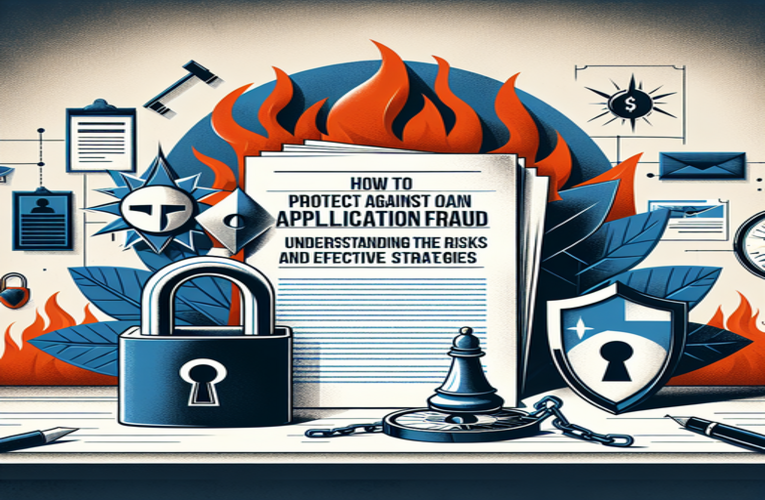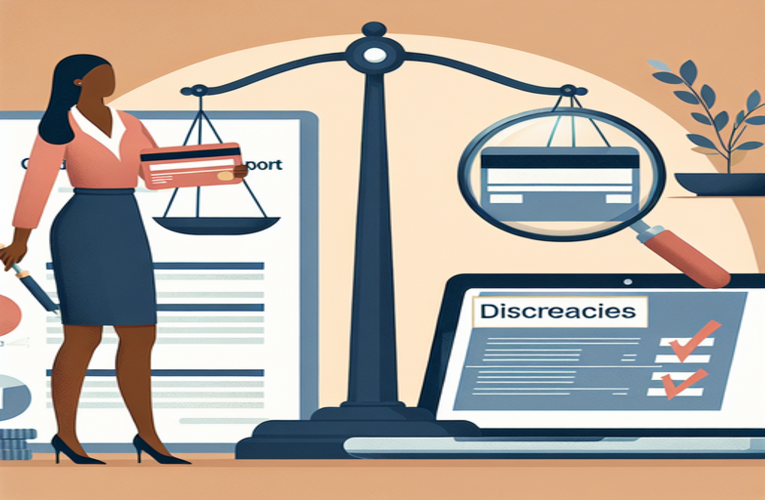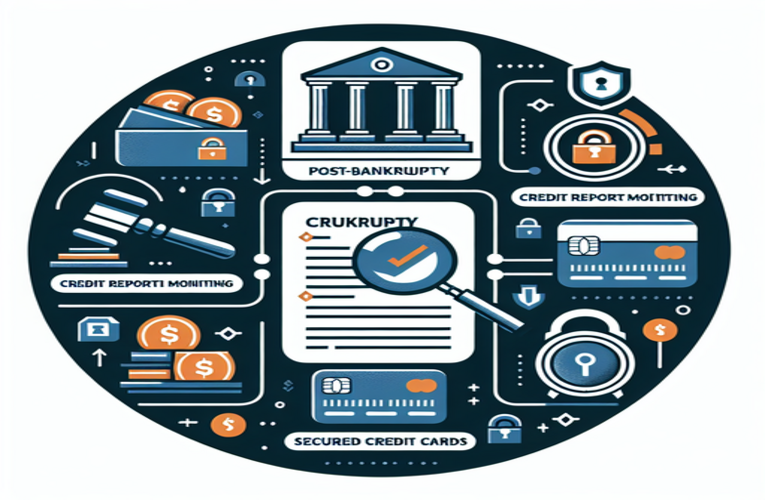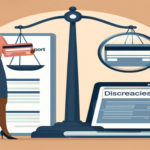Ways to protect your credit during major life changes and transitions
Understanding the intricate relationship between major life changes and your credit score is essential for safeguarding your financial health. Significant transitions—such as marriage, pursuing further education, starting a new business, or coping with unexpected events like job loss or medical expenses—can have profound implications on your credit profile. In this article, we will explore how these pivotal moments can affect your credit and provide practical advice on managing your credit during life’s major transitions.
In particular, we will delve into:
- How marriage can influence your credit score through merged finances and shared loan applications.
- The impact of student loans when returning to school and how timely payments can bolster your credit health.
- The importance of separating personal and business finances when starting a business to maintain credit stability.
- Strategies for managing credit during financial challenges, including unemployment or medical emergencies.
By equipping yourself with the knowledge and tools shared within this article, you can navigate life’s significant transitions with confidence, ensuring that your credit score remains healthy and your financial future stays secure. Let’s embark on this journey to understand the impact of life changes on your credit and discover effective ways to safeguard your credit during major life events.
Table of Contents
Understanding the Impact of Major Life Changes on Your Credit Score
Navigating through significant life transitions can be a daunting experience, especially when these changes have a direct impact on your financial health and credit score. Major life events, such as marriage, pursuing further education, launching a new business, experiencing job loss, or incurring substantial medical expenses, can profoundly influence your credit situation. These changes can affect your creditworthiness, credit utilization ratio, and overall financial stability. Therefore, understanding effective ways to protect your credit during major life changes is essential for maintaining financial health and ensuring access to credit opportunities in the future.
Marriage
Marriage signifies the merging of lives, but it often entails the merging of finances as well, which can have a significant impact on your credit score. If your spouse has a low credit score or significant debt, it can affect joint applications for loans, mortgages, or credit cards. For instance:
- Merging Finances: Your combined credit profiles will be considered in joint financial endeavors. If one spouse has poor credit, it may result in higher interest rates or even denial of credit applications.
- Joint Account Responsibilities: Opening joint accounts means both parties are equally responsible for debts. Late payments or defaults can negatively impact both credit scores.
- Authorized Users: Adding a spouse as an authorized user on accounts can help build their credit but also carries risk if they overspend.
To mitigate these risks, it’s crucial to have open discussions about each other’s financial habits, credit histories, and financial goals. Creating a financial plan together can help you strategically manage joint finances and protect your individual credit scores during this major life change. Consider consulting a financial advisor to navigate complex financial decisions, such as combining debts or purchasing a home.
Returning to School
Pursuing further education is a significant investment in your future career, but it can also have implications for your credit health. Taking out student loans increases your overall debt load, which can affect your credit utilization ratio and debt-to-income ratio. Additionally, student loans often result in hard inquiries on your credit report, which can temporarily lower your credit score.
- Student Loans Impact: The increased debt from student loans can make lenders wary, potentially affecting your ability to obtain additional credit. While federal student loans may not require a credit check, private student loans typically do, and they can influence your credit score.
- Deferred Payments: While in school, you may have the option to defer loan payments, but interest may continue to accrue, increasing the total amount owed.
- Timely Payments: Once repayment begins, consistently making on-time payments can positively impact your credit score, demonstrating financial responsibility.
To protect your credit during this major life change, consider establishing a clear repayment plan from the outset. Explore all available options for financial aid, scholarships, or grants to minimize the amount of debt you need to take on. Additionally, maintaining a budget while in school can prevent reliance on credit cards for daily expenses, helping to keep your credit utilization low.
Starting a Business
Embarking on entrepreneurship is an exciting venture, but it often requires significant financial investment, which can impact your personal credit if not managed carefully. Many new business owners use personal credit cards or personal loans to fund startup costs, which can increase personal debt and affect credit utilization ratios.
- Business-Related Debt: Incurring debt to fund your business can pose risks to your personal credit score, especially during the initial phases when revenue is uncertain. High balances on credit cards or late payments on business loans you’ve personally guaranteed can negatively affect your credit.
- Separate Finances: Keeping personal and business finances separate is vital. Opening a business bank account and obtaining an Employer Identification Number (EIN) can help establish a separate business credit profile.
- Building Business Credit: Using business credit cards and lines of credit can help build your business credit history, reducing reliance on personal credit for business expenses.
To protect your personal credit during this major life change, consider consulting with a financial advisor or accountant to set up proper financial structures. Developing a solid business plan can also assist in securing business financing without heavily relying on personal credit. Additionally, regularly monitoring both your personal and business credit reports can help you address any issues promptly.
Proactive Strategies
Regardless of the specific life change you’re undergoing, implementing proactive strategies can significantly protect your credit health. Here are some actionable steps to consider:
| Strategy | Description | Benefit |
|---|---|---|
| Create a Comprehensive Budget | Outline your expected expenses and income changes, including any new financial obligations. Consider using budgeting apps or software to track spending. | Helps manage finances during turbulent times, prevents overspending, and ensures you can meet all payment obligations on time. |
| Communicate with Lenders | Reach out to creditors if you foresee payment difficulties due to life changes. They may offer hardship programs, payment plans, or deferments. | May offer support or solutions to avoid penalties, late fees, or negative reports to credit bureaus. |
| Monitor Your Credit Report | Regularly check for errors, inaccuracies, or unauthorized accounts. You are entitled to a free annual credit report from each major bureau. | Protects against identity theft and maintains creditworthiness by ensuring your credit report accurately reflects your financial behavior. |
| Establish an Emergency Fund | Build a financial cushion by saving a portion of your income to cover unexpected expenses or income loss. Financial advisors recommend saving three to six months’ worth of expenses. | Avoids resorting to credit during major life changes, reducing the risk of accumulating high-interest debt that can harm your credit score. |
| Limit New Credit Applications | Avoid applying for new credit unless absolutely necessary, as each application can result in a hard inquiry on your credit report. | Prevents unnecessary hard inquiries that can lower your credit score and helps maintain a stable credit history. |
Implementing these strategies can empower you to take control of your financial situation during significant life transitions. By being proactive and informed, you can safeguard your credit score and ensure long-term financial well-being.
Maintaining Good Credit During Major Life Changes
Navigating significant life transitions such as marriage, divorce, or the loss of a spouse presents both excitement and challenges, particularly concerning credit management. Understanding effective ways to protect your credit during these pivotal moments is essential, as your financial decisions during these times can profoundly influence your future creditworthiness and financial stability. Major life changes can alter your income, expenses, and financial responsibilities, making it crucial to proactively manage your credit to avoid adverse effects.
Key Strategies for Managing Credit
- Joint Accounts in Marriage:
- Opening a joint account can be beneficial for managing shared expenses and building credit together, but it also links your credit to your partner’s financial behavior.
- Any late payments, high balances, or defaults on joint accounts can negatively affect both partners’ credit scores. For example, a single late payment can lower your credit score by several points, with the exact impact depending on your overall credit history.
- Before opening joint accounts, consider each other’s spending habits and credit histories, and set clear guidelines for managing joint finances.
- Divorce and Financial Commitments:
- Divorce can be emotionally and financially taxing. One of the critical steps is to evaluate all shared financial commitments, including joint credit cards, loans, and mortgages.
- Closing or separating joint accounts can prevent future credit risks linked to your ex-partner’s financial activities. If your ex-partner misses a payment on a joint account, it can adversely affect your credit score.
- If closing accounts is not immediately possible, establish a clear agreement on who is responsible for payments and ensure these accounts are monitored closely.
- Consider consulting a financial advisor or attorney to assist with dividing debts and assets to protect your credit during this major life change.
- Loss of a Spouse:
- Experiencing the loss of a spouse is devastating, and it can bring financial uncertainties, especially if the spouse was a primary income earner.
- Revise your budget to reflect changes in income and expenses, and understand any insurance benefits or survivor benefits you may be entitled to receive.
- Ensure that all bills, especially those that may have been handled by your spouse, are paid on time to prevent negative impacts on your credit score.
- Implement strategies to maintain your credit score during this emotional and financial transition, such as setting up automatic payments and seeking professional financial advice.
Impact of Financial Behavior on Credit
| Financial Action | Potential Impact on Credit Score | Recommended Approach |
|---|---|---|
| Joint Account Late Payment | Negative marks on credit reports for both parties | Avoid late payments by setting up payment reminders or automatic payments |
| Divorce Financial Separation | Prevents credit score from being affected by ex-partner’s actions | Close or separate joint accounts, remove ex-partner as authorized user |
| Managing Bereavement | Financial strain may lead to late or missed payments | Review budget, prioritize payments, explore assistance programs |
By understanding the dynamics of credit in relation to significant life events and prioritizing financial wellness, you can navigate these changes confidently. Implementing sound financial practices and being proactive in managing your credit can help you maintain a healthy credit score during major life transitions. Taking steps to protect your credit not only safeguards your current financial standing but also sets the stage for future financial opportunities, such as favorable interest rates on loans and credit approval for significant purchases like a home or vehicle.
Managing Financial Challenges and the Impact on Credit History After Job Loss or Medical Expenses
Experiencing job loss or substantial medical expenses can significantly disrupt your financial landscape, subsequently affecting your credit history. These unexpected life events may lead to a reduction in income and an increase in expenses, making it challenging to meet financial obligations. Here are key strategies to protect your credit during major life changes:
- Understanding Ways to Protect Your Credit: Stay informed about the various methods available to safeguard your credit score. Educate yourself on credit management techniques and resources that can assist during financial hardships.
- Establishing a Detailed Budget: Create a realistic budget that accounts for reduced income and prioritizes essential expenses such as housing, utilities, and food. This is essential for effectively managing limited financial resources and avoiding missed payments.
- Maintaining Open Communication with Lenders: Contact your creditors immediately if you anticipate difficulties in making payments. Lenders may offer options like deferring payments, adjusting interest rates, or modifying loan terms to accommodate your situation.
- Monitoring Credit Utilization: Aim to keep your credit utilization ratio below 30% to avoid further damaging your credit score. If possible, refrain from accumulating additional debt during this period.
- Regular Credit Report Monitoring: Check your credit reports regularly for unauthorized accounts and inaccuracies to maintain the integrity of your credit history. Promptly dispute any errors with the credit bureaus.
- Developing a Comprehensive Recovery Plan: Once financial stability is regained, plan for timely payments and work on reducing any accumulated debts. Consider creating an emergency fund to prepare for future unforeseen expenses.
| Action | Impact on Credit Score | Additional Notes |
|---|---|---|
| Establishing a Detailed Budget | Helps in managing financial resources effectively | Crucial during periods of limited income |
| Open Communication with Lenders | Potential to modify loan terms favorably | Lenders may offer deferred payments or adjusted plans |
| Monitoring Credit Utilization | Affects credit score positively when kept low | Keep utilization below 30% of total credit limit |
Avoiding a decline in your credit score largely depends on your payment history. Even during brief periods of financial difficulty, failure to make payments can be detrimental. Therefore, establishing a budget becomes crucial as it aids in maintaining control over financial outflows.
Lenders are often understanding of financial struggles and may offer solutions. Successful communication can lead to lifelines such as deferred payments or modified loan terms. If credit cards are being used to manage expenses, keep your utilization ratio below 30% of the total credit limit. This helps prevent further harm to your credit score. Regular monitoring of your credit report is critical; quickly correcting any errors helps maintain the integrity of your history.
Developing a comprehensive recovery plan is vital. As financial stability returns, prompt payments can aid in improving your credit score. Facing financial hardships does not mean ending a positive credit history. With diligent management and strategic foresight, protect your credit during tumultuous times to emerge with a resilient financial standing.
Focusing on proactive measures and informed decision-making can alleviate adverse effects of financial struggles, laying a solid foundation for future financial health.
Summary
Understanding Major Life Changes and Credit Score Impact
Significant life transitions can profoundly affect your credit score and overall financial health. Here’s a concise summary of effective strategies to protect your credit during these major life changes:
- Marriage: Combining finances can significantly influence your credit. Engage in open discussions about financial matters to mitigate risks associated with your spouse’s existing debt or credit history, ensuring both partners maintain a healthy credit profile.
- Returning to School: Taking on student loans can impact your credit utilization. Making timely payments is essential for maintaining and improving your credit score, thereby safeguarding your credit during your educational pursuits.
- Starting a Business: It’s crucial to keep personal and business finances separate to protect your personal credit. Implementing effective budgeting and ensuring timely payments on any business-related debts are key strategies for maintaining a strong credit standing while launching a new venture.
- Financial Challenges: During periods of job loss or unexpected medical expenses, establishing a strict budget and maintaining open communication with lenders is vital. Additionally, monitoring your credit utilization ratio and keeping it below 35% can help avoid negative impacts on your credit score during financial hardships.
Key Strategies for Credit Protection
- Create a Comprehensive Budget: Developing a detailed budget helps manage resources effectively during significant life transitions, ensuring that your credit remains protected.
- Communicate Proactively with Lenders: Lenders may offer solutions such as deferred payments or modified terms when you face financial challenges, helping you maintain your credit health.
- Regularly Monitor Your Credit Report: Conducting frequent checks on your credit report can help identify inaccuracies and protect against identity theft, ensuring your credit remains accurate and secure.
- Establish an Emergency Fund: Creating a financial cushion can prevent the need to resort to credit during unexpected events, thereby safeguarding your credit score.
By proactively managing your credit through these strategies during pivotal life moments, you can ensure a secure and stable financial future. Prioritizing these methods will effectively safeguard your credit score amidst major life changes.
Frequently Asked Questions
1. How can I enhance my credit score following a major life event or significant life change?
To improve your credit score after experiencing a major life event, focus on making timely payments, reducing outstanding debt balances, and regularly monitoring your credit report for inaccuracies. Establish a comprehensive budget to better manage your finances, and consider consulting a financial advisor for personalized credit improvement strategies. Utilizing credit-building tools and maintaining responsible financial habits can also contribute to elevating your credit rating during and after significant life changes.
2. What financial habits should I prioritize when getting married or entering a marital partnership?
Prioritize open communication about each other’s financial habits and goals, consider creating a comprehensive joint budget, and establish clear guidelines for managing shared accounts. Additionally, discuss debt management, savings plans, and investment strategies to prevent misunderstandings or potential credit issues. Implementing these financial practices can foster financial stability and a healthy credit profile for both partners in a marriage.
3. Can student loans or education loans negatively affect my credit score even if I make on-time payments?
Yes, student loans and other education loans can influence your credit score through factors such as hard inquiries during the loan application process and potentially increasing your overall credit utilization ratio if they contribute to higher debt levels. Additionally, the length of your credit history and the types of credit accounts you have can be affected by taking on education debt. However, maintaining consistent on-time payments on your student loans can help build a positive credit history and may improve your credit score over time.
4. What steps should I take to protect my personal credit while starting a new business or becoming self-employed?
To safeguard your personal credit when launching a new business, separate personal and business finances by opening dedicated business bank accounts, create a detailed business budget, and consider establishing a separate business credit profile. Additionally, ensure timely payments on any business loans or business credit accounts, monitor your business credit reports, and maintain a clear distinction between personal and business expenses. Implementing these practices can help protect your personal credit score while supporting the financial growth of your new enterprise.
5. Which factors should I regularly monitor on my credit report to maintain a healthy credit score?
Regularly monitor your credit report for inaccuracies, unauthorized accounts, and fraudulent activities to ensure all information is reported accurately. It’s also vital to check your credit utilization ratio, review the status of open and closed accounts, and examine any recent hard inquiries that may impact your credit score. Additionally, keep an eye on your credit limits and account balances, as well as the presence of public records or collections, to proactively manage and maintain a healthy credit profile.
6. How can I manage my credit effectively if I experience a job loss or sudden income reduction?
In the event of a job loss, develop a comprehensive budget to prioritize essential expenses, maintain communication with your lenders to request payment flexibility or hardship programs, and explore options such as debt consolidation or temporary payment plans. Prioritize on-time payments for critical financial obligations like mortgage or rent, utilities, and essential unsecured debts to mitigate damage to your credit score. Additionally, consider seeking financial assistance or unemployment benefits to help cover expenses while you work on rebuilding your income and credit stability.
7. What are the benefits of having an emergency fund during major life changes or unforeseen financial challenges?
Having an emergency fund offers a financial cushion for unexpected expenses, such as medical emergencies, job loss, or major repairs, reducing the need to rely on credit cards or personal loans. This financial safety net helps maintain your credit score by allowing you to cover urgent costs without incurring high-interest debt, thereby avoiding accumulation of costly debt during turbulent times. Additionally, an emergency fund provides peace of mind and financial stability, enabling you to navigate major life changes with greater confidence and resilience.
8. What actions should I take if my credit score drops after a major life event or financial setback?
If your credit score declines following a major life event, such as divorce, job loss, or significant medical expenses, take immediate action by reviewing your credit report to identify and dispute any errors or inaccuracies. Develop a structured plan to pay off outstanding debts, focusing on high-interest accounts first, and consider negotiating with creditors for more favorable terms. Additionally, prioritize making timely payments on all your financial obligations and reduce your credit utilization ratio to improve your credit standing. Over time, consistent positive financial behavior and responsible credit management can help rebuild and enhance your credit score.
9. Is it advisable to open a joint bank account with my spouse or partner, and how can it impact our credit?
Opening a joint bank account with your spouse or partner can be advantageous for managing shared expenses, such as household bills, mortgage payments, and daily living costs. However, it’s essential to discuss and align your financial habits and goals beforehand to ensure compatibility. Additionally, understand that a joint account can impact both partners’ credit scores, as any late payments or overdrafts can negatively affect each individual’s credit history. Establish clear financial guidelines and regularly monitor the joint account to prevent misunderstandings and maintain a healthy credit profile for both partners.
10. How can I safeguard my personal credit during a divorce or separation?
To protect your personal credit during a divorce or separation, evaluate and separate any joint bank accounts, credit cards, and loans to ensure that financial obligations are managed independently. Ensure that all shared debts are communicated, and take steps to have them refinanced or transferred if possible. Review and update your credit report to remove any joint accounts that have been closed or are no longer shared. Additionally, monitor your credit report closely for any unauthorized activity or actions related to your ex-partner’s credit behavior, and consider placing a fraud alert or credit freeze if necessary. Taking these measures can help maintain your individual credit standing and prevent financial complications during and after the divorce process.




















